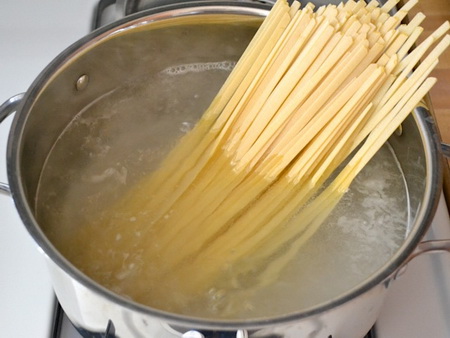How does the density of pasta affect the amount of time the pasta needs to cook?
This is for an eighth grade lab.
This is for an eighth grade lab.
1 Answer
The density of pasta is just one of the factors that could affect the cooking time of the pasta.
Some factors could affect cooking time might be the type of flour in the pasta, the thickness of the pasta, and the density of the pasta.
Your science teacher can probably think of some more.
I am not a pasta chef, so I can't talk about the effect of the flour on cooking time, but it could affect the density of the pasta.
Pasta Thickness
Thick pasta needs an increased cook time.
The pasta must absorb water, and then heat has to get from the outside of the pasta to the inside to cook it all the way through.
Thin angel-hair pasta would turn to mush long before a thick, hand-rolled pasta had finished cooking.

(From www.budgetbytes.com)
Density
I would make a hypothesis: a dense pasta will cook faster than one that is less dense.
The particles in the dense pasta would be closer to each other, so they should be able to transfer their heat energy more effectively to their neighbours that are closer to the inside of the pasta.

